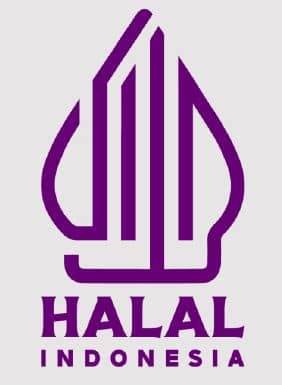Recently, the Indonesian government introduced new regulations that will make Halal certification mandatory for various consumer goods. Large-scale businesses in the food, health, and cosmetic industries must follow the general Halal certification process. Violating this obligation can result in a ban on selling goods within the Indonesian market. Halal certification ensures that products are free from any substances considered Haram, or unlawful, according to Islamic law.
Countdown to mandatory halal certification: 2024
Halal Regulation
Indonesia’s Halal certification law, Government Regulation 39 of 2021 (GR 39/2021) which was issued in October 2021, will impact businesses in most industries. GR 39/2021 states that products that enter, circulate, and are traded in Indonesia must be Halal certified unless they are originating from materials prohibited under Islam (Haram).
As the world’s most populous Muslim country, Indonesia is naturally also the world’s largest Halal market, particularly for the food, tourism, cosmetic, and pharmaceutical sectors. Before the pandemic, global spending on Halal products reached over US$2 trillion with Indonesian consumers spending some 10 percent or over US$200 billion of this total on Halal products and services.
Which products and services must be halal ceritfied ?
1. Halal Food and drink
2. Halal Pharmaceuticals / medicine
3. Halal Cosmetics
4. Chemical products
5. Biological products
6. Genetically modified products
7. Processing
8. Storage
9. Packaging
10. Distribution
11. Animal Slaughter
12. Sales
13. Serving
Exemption for halal certification
1. Alcohol drinks.
2. Some animal products.
3. Disobedience symbols, images, names.
4. Haram products according to Islamic law.
5. Products made with any artificial flavor, citric acid, or lecithin (Emulsifier).
Three products must be halal-certified by 17 October 2024. If they are not certified and circulated in the community, there will be a sanctions. The first category of products is food and beverages, the second category is raw materials, food additives and supplementary materials for food and beverages and the third category is slaughterhouse products and services. The halal certification compliance period for this three products is on October 17, 2019 - October 17, 2024.

Procedure of Halal Certification in Indonesia
1. Submission Stage
- Submission of application including company documents, list of goods and supplies used, production management to The Halal Product Assurance Organizing Body (BPJPH).
- The documents reviewed by BPJPH
2. Inspection Stage
- Payment of the submission once the application submission is verified
- The assignment of the Halal Inspection Institution (LPH)
- LPH appoints a Halal auditor team to conduct product and processing inspection
3. Examination Stage
- LPH examination of product samples in the laboratory (if needed)
- Prepare and submit a report for Majelis Ulama Indonesia (MUI) based on the inspection findings
4. Determination Stage
- MUI conducts Halal Fatwa Assembly to determine the Halal status of the products approval or rejection
5. Issuance Stage
- Issuance of the Halal Certification after BPJHP receive approval confirmation from MUI
After the ruling has been issued, the BPJPH will issue the Halal certificate within one business day. The Halal certificate is valid for four years.
Halal certification for imported products.
Products originating from abroad and produced abroad must obtain a halal certificate through the Halal Inspection Institution in the country known as the Foreign Halal Certification Agency (LHLN) that have a mutual recognition agreement (MRA) with BPJPH.
Requirements
- Company/business details
- Product name and type
- Product data and materials used
- Product processing
- Halal product assurance/guarantee system document
On Halal World 2023 event in Jakarta from 17 until 21 November, the Halal Product Assurance Organizing Agency (BPJPH) of the Religious Affairs Ministry signed a mutual recognition agreement (MRA) with 37 foreign halal institutions (LHLN). There were two types of MRA signed at the event. First, the MRA signing between BPJPH and nine LHLNs for mutual recognition and acceptance
The nine LHLNs that have signed an MRA with BPJPH for recognition and mutual acceptance of halal certificates are the Korea Muslim Federation (KMF), Korean Halal Authority, Islamic Food and Nutrition Council of America (IFANCA), Taiwan Halal Integrity Development Association, The Central Islamic Council of Thailand, Halal Certification Center of Chile (Chilehalal), Halal Conformity Services, The Federation of Islamic Associations of New Zealand (FIANZ), and New Zealand Islamic Development Trust Ltd. Meanwhile, the 28 LHLNs signed up for the second type of agreement, among others the American Halal Foundation (AHF), ISWA Halal Certification Department, Islamic Services of America ISA, Halal Transactions Inc./Halal Transaction of Omaha, Islamic Food and Nutrition Council of Canada, and Halal Montreal Certification Authority Inc.
If you, Dutch companies in Indonesia or outside Indonesia, would to know more about Halal in Indonesia, reach us, the Agriculture team in Jakarta, email : Jak-LNV@minbuza.nl